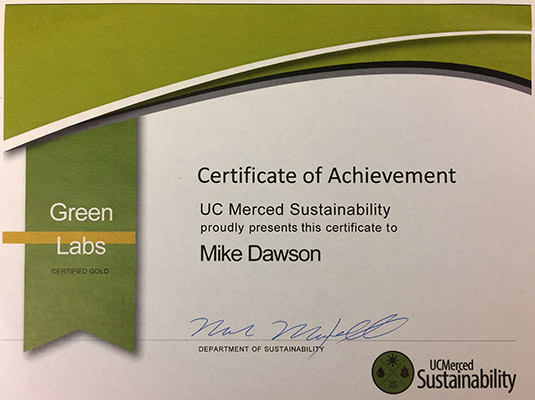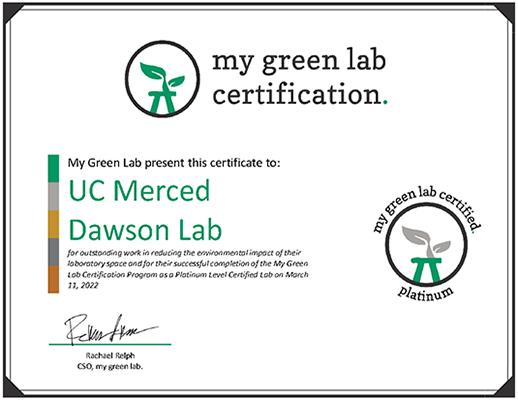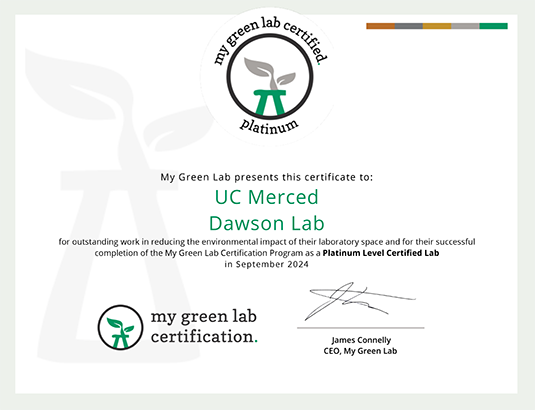

Our Green Lab:
After starting working in a lab or in the field, it quickly becomes apparent that science can have big impacts on the things we're studying. The plastics and energy used in running analyses in a modern lab, for example, ultimately feed into processes we might be trying to study such as climate change. Minimizing our impacts on what we study seems like common-sense, so we endeavor to maintain a 'green' lab. Starting in 2016, in collaboration with our Office of Sustainability <http://sustainability.ucmerced.edu/> and Environmental Health & Safety <http://ehs.ucmerced.edu/>, we earned a "gold" certification; recertification in 2022 saw improvements to "platinum" which we were able to maintain in 2024. We're still striving for a "green" green lab.



https://www.facebook.com/sustainUCMerced/photos/pb.166219629144.-2207520000.1482278251./10154449662249145/?type=3&theater.
http://www.mygreenlab.org/
Our goals for the coming year include:
– make durable signs about turning equipment off
– vacuum the outside of refrigerator and freezer coils annually or biannually
– chill up our ultra-low temperature freezers (maybe we can get a >10°C adjustment)
– use recyclable gloves when possible
– consciously purchase products without PVC, BPA, PBTs, or phthalates (at least once per 6 months)
– use Green Seal cleaning products
– post information on alternative transportation
– post protocols/stickers with information about turning off common equipment
– conduct green lab training for all personnel including new staff in the group
We're also concerned about impacts in the field. Some of our research looking into the potential effects of people visiting marine lakes include documentation of species introduction and use of sunblocks. Many years ago, we established protocols to guard against direct anthropogenic disturbances, including sterilizing equipment between sampling, using sun clothing rather than sun block, and have designed tour-guide training workshops to help reduce the impact of tourism. Of course, there are also indirect effects of getting to and from the field sites that may exacerbate global change, which are harder to address on a local scale.
And here are a few papers on related issues, which we try to keep at the forefront of our minds while working in the field.
"The shoemaker's son ..." http://escholarship.org/uc/item/5bn4093f.